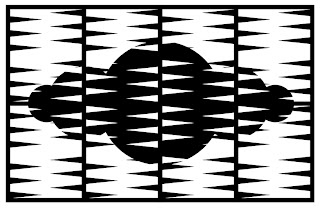Thursday, December 31, 2009
Breviary
breviary \ˈbrē-və-rē\ noun: 1. a book of the prayers, hymns, psalms and readings for the canonical hours, 2. a brief summary
Etymology: Middle English breviarie, from Medieval Latin breviarium, from Latin, summary, from brevis brief, short
A breviary figures in Abbé Faria’s telling of the history of the treasure in The Count of Monte Cristo.
Wednesday, December 30, 2009
Cantankerous
cantankerous \kan-ˈtaŋ-k(ə-)rəs,\ adjective: difficult or irritating to deal with {a cantankerous mule}
Etymology: perhaps irregular from obsolete contack contention
What example could Merriam-Webster use but a mule?
Tuesday, December 29, 2009
Stertor
stertor \ˈstər-tər\ noun: the act or fact of producing a snoring sound; snoring
Etymology: Latin stertere to snore
Boring, coring, flooring, goring, mooring, pouring, roaring, snoring, touring, whoring. Now I feel like a two-cent rhyming dictionary, but it was fun while it lasted.
Monday, December 28, 2009
Stertorous
stertorous \ˈstər-tə-rəs\ adjective: characterized by a harsh snoring or gasping sound
Etymology: Latin word stertere to snore
Would you use this word to describe your car? Your pet? Your repressed thoughts?
Sunday, December 27, 2009
Circumvolution
circumvolution \sər-ˌkəm-və-ˈlü-shən, ˌsər-kəm-vō-ˈlü-shən\ noun: an act or instance of turning around an axis
Etymology: Middle English circumvolucioun, ultimately from Latin circum- + volvere to roll
Circumvolution sounds like a circumlocution; can’t we just say rotation?
Saturday, December 26, 2009
Circumlocution
circumlocution \ˌsər-kəm-lō-ˈkyü-shən\ noun: 1. the use of an unnecessarily large number of words to express an idea, 2. evasion in speech
Etymology: Middle English circumlocucyon, from Latin circum- around, about (from circus circle) + locutio speech (from loqui to speak)
I’m surprised circumlocution hadn’t been featured in Sklonklish before today.
Friday, December 25, 2009
Humbug
humbug \ˈhəm-ˌbəg\ noun: 1. something designed to deceive and mislead, 2. a willfully false, deceptive or insincere person, 3. an attitude or spirit of pretense and deception, 4. nonsense; drivel
Etymology: hum delude, impose, cajole + bug specter, goblin
This etymology really delivers the goods. What more could you want?
Thursday, December 24, 2009
Lumbago
lumbago \ˌləm-ˈbā-(ˌ)gō\ noun: acute or chronic pain (as that caused by muscle strain) in the lower back
Etymology: Latin, from lumbus
Lumbago sounds like the name of dance, although dancing might be the last thing on your mind if you suffered from it.
Wednesday, December 23, 2009
Parlous
parlous \ˈpär-ləs\ adjective: 1. (obsolete) dangerously shrewd or cunning, 2. full of danger or risk; hazardous {the parlous state of the country}
Etymology: Middle English, alteration of perilous
You and your parlous parlor games…
Tuesday, December 22, 2009
Freshet
freshet \ˈfre-shət\ noun: 1. (archaic) stream, 2. a great rise or overflowing of a stream caused by heavy rains or melted snow, 3. a swelling quantity; influx {summer brings a freshet of tourists}
Etymology: Archaic English fresh stream or pool of freshwater + -et small one
A fleshet is an overflowing of meat.
Monday, December 21, 2009
Tumescent
tumescent \tü-ˈme-sənt\ adjective: somewhat swollen {tumescent tissue}
Etymology: Latin tumescent-, tumescens, present participle of tumescere to swell up, inchoative of tumēre to swell
You guessed it — tumor shares an etymology.
Sunday, December 20, 2009
Tumid
tumid \ˈtü-məd\ adjective: 1. marked by swelling; swollen; enlarged {a badly infected tumid leg}, 2. protuberant; bulging {sails tumid in the breeze}, 3. bombastic; turgid
Etymology: Latin tumidus, from tumēre to swell
It’s not the teat — it’s the tumidity.
Saturday, December 19, 2009
Turgid
turgid \ˈtər-jəd\ adjective: 1. being in a state of distension; swollen; tumid {turgid limbs}, 2. excessively embellished in style or language; bombastic; pompous {turgid prose}
Etymology: Latin turgidus, from turgēre to be swollen
Would you rather have turgid limbs or turgid prose?
Friday, December 18, 2009
Thursday, December 17, 2009
Chivy
chivy \ˈchi-vē\ transitive verb: 1. to tease or annoy with persistent petty attacks, 2. to move or obtain by small maneuvers {chivy an olive out of a bottle}
Etymology: English chivy (noun) chase, hunt
Olives hate to be teased or annoyed with persistent petty attacks.
Wednesday, December 16, 2009
Mephitis
mephitis \mə-ˈfī-təs\ noun: 1. a noxious, pestilential or foul exhalation from the earth, 2. stench
mephitic \mə-ˈfi-tik\ adjective: 1. of, relating to, or resembling mephitis, 2. foul-smelling {mephitic vapors}
Etymology: Latin
Mefitis (or Mephitis) was the Roman goddess of volcanic vapors and other noxious fumes from the earth. Mephistopheles (or Mephisto) was the devil to whom Faust sold his soul.
Tuesday, December 15, 2009
Blasé
blasé \blä-ˈzā\ adjective: 1. apathetic to pleasure or excitement as a result of excessive indulgence or enjoyment; world-weary, 2. sophisticated, worldly-wise, 3. unconcerned
Etymology: French
Remember “Café Blasé” T-shirts from the ‘70s?
Monday, December 14, 2009
Ludic
ludic \ˈlü-dik\ adjective: of, relating to, or characterized by play; playful {ludic behavior, a ludic novel}
Etymology: French ludique, from Latin ludus game, play, sport (from ludere to play, mock, tease)
Ludic does not refer to ludes. (Or, um, does it?) Ludic is not related to lewd. (Or, um, is it?)
Sunday, December 13, 2009
Viscus
viscus \ˈvis-kəs\ noun: an internal organ of the body, especially one located in the cavity of the trunk
Etymology: Latin
Viscera is the plural, and visceral describes an experience felt as if originating in the viscera.
Saturday, December 12, 2009
Misology
misology \mə-ˈsä-lə-jē\ noun: a hatred of argument, reasoning or enlightenment
Etymology: Greek misologia, from miso- dislike, hatred + -logia, from logos word, reason
If I had known about misology in college, I would have majored in it.
Friday, December 11, 2009
Aureate
aureate \ˈor-ē-ət\ adjective: 1. of a golden color or brilliance {aureate light}, 2. marked by grandiloquent and rhetorical style {aureate diction}
Etymology: Middle English aureat, from Medieval Latin aureatus decorated with gold, from Latin aureus
Can you compose a sentence in which aureate appears only once but where both definitions make sense?
Thursday, December 10, 2009
Frustum
frustum \ˈfrəs-təm\ noun: a cone or pyramid whose tip has been truncated by a plane parallel to its base
Etymology: Latin frustum piece, bit
This way you can sit on top without hurting yourself.
Wednesday, December 9, 2009
Jocose
jocose \jō-ˈkōs, jə-\ adjective: 1. given to joking; merry, 2. characterized by joking; humorous
Etymology: Latin jocosus, from jocus joke
I hear people use jocular more often than jocose.
Tuesday, December 8, 2009
Parlous
parlous \ˈpär-ləs\ adjective: 1. obsolete: dangerously shrewd or cunning, 2. full of danger or risk; harzardous {the parlous state of the country}
Etymology: Middle English, alteration of perilous
Don’t be fooled by definition #1’s obsolescence — it’s dangerously shrewd or cunning that way.
Monday, December 7, 2009
Argot
argot \ˈär-gət, -(ˌ)gō\ noun: an often more or less secret vocabulary and idiom peculiar to a particular group
Etymology: French
Don’t confuse argot with ergot, a fungal disease of rye and other grasses whose consumption can induce hallucinations (among other nasty symptoms).
Sunday, December 6, 2009
Terraqueous
terraqueous \te-ˈrā-kwē-əs, tə-, -ˈra-\ adjective: consisting of land and water
Etymology: Latin terra land + English aqueous
Is it land? Is it water? It’s terraqua!
Saturday, December 5, 2009
Illiquid
illiquid \(ˌ)i(l)-ˈlik-wəd\ adjective: 1. not being cash or readily convertible into cash {illiquid holdings}, 2. deficient in liquid assets {an illiquid bank}
Etymology: Latin il- not + liquid (from Latin liquēre to be fluid)
So ice is not illiquid water?
Friday, December 4, 2009
Ambisinistrous
ambisinistrous \ˌam-bi-ˈsi-nəs-trəs\ adjective: lacking facility in both hands
Etymology: Latin ambi- both + sinister on the left
I don’t need to point out that ambisinistrous (literally “having two left hands”) is antonymous with ambidextrous (“having two right hands”). Thanks to reader Vicki Peter for suggesting this entry word.
Thursday, December 3, 2009
Snickersnee
snickersnee \ˈsni-kə(r)-ˌsnē\ noun: a large knife
Etymology: obsolete snick or snee to engage in cut-and-thrust fighting, alteration of earlier steake or snye, from Dutch steken of snijden to thrust or cut
What a cute word!
Wednesday, December 2, 2009
Facetiae
facetiae \fə-ˈsē-shē-ˌē, -ˌī\ plural noun: witty or humorous writings or sayings
Etymology: Latin, from plural of facetia jest, from facetus elegant, witty
Sometimes the only difference between facetiae and feces is the point of view of the reader.
Tuesday, December 1, 2009
Eldritch
eldritch \ˈel-drich\ adjective: weird, eerie
Etymology: perhaps from Middle English elfriche fairyland, from Middle English elf + riche kingdom, from Old English rīce
What a weird word for weird.
Subscribe to:
Comments (Atom)


































